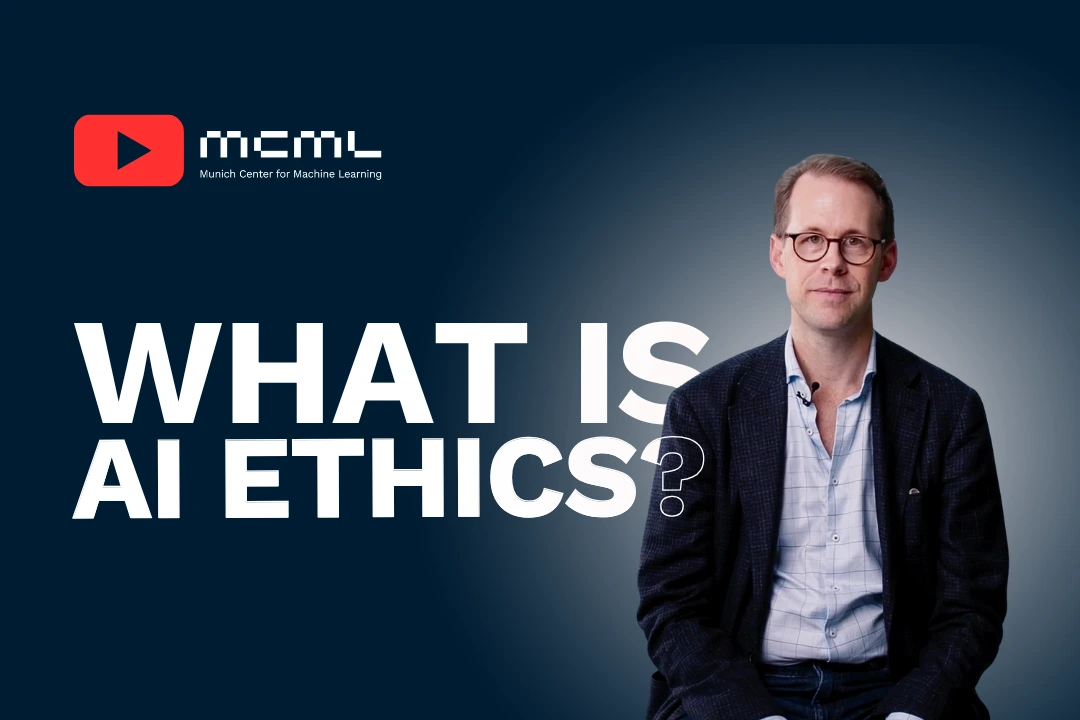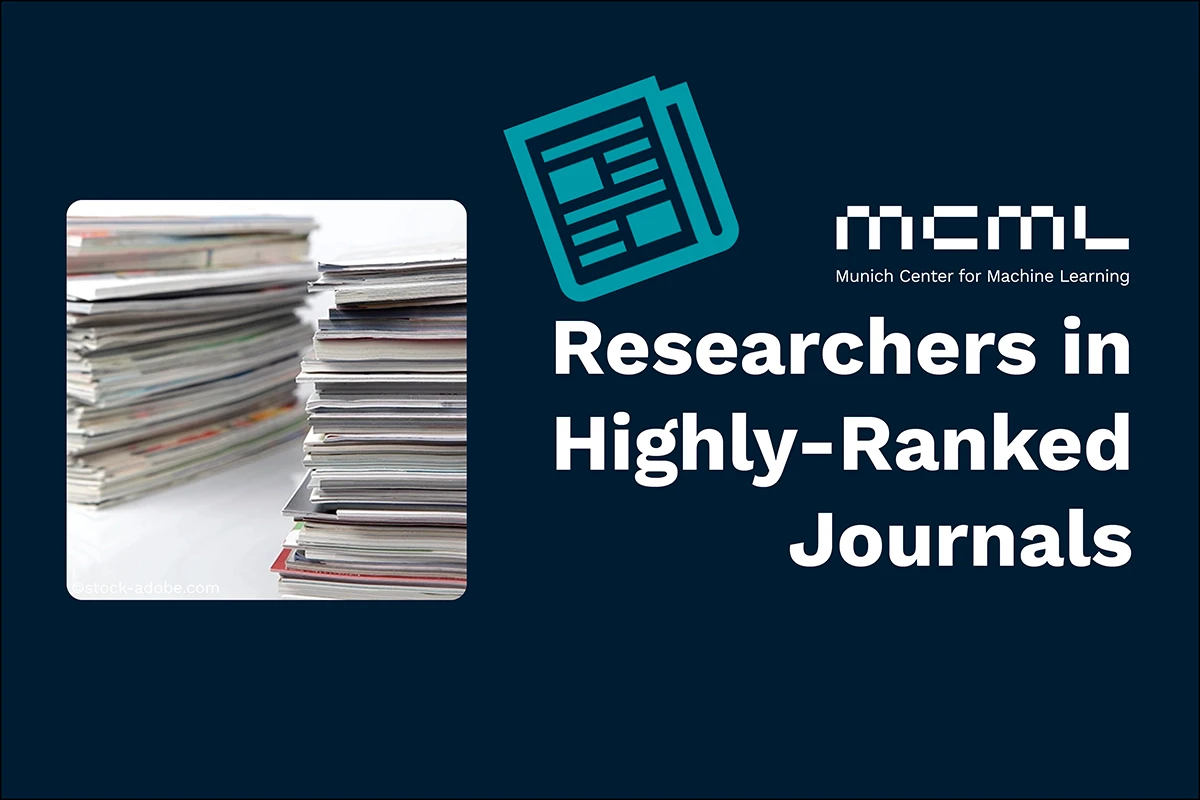Research Group Sven Nyholm
Sven Nyholm
is Professor of Ethics of Artificial Intelligence at LMU Munich.
His research and teaching encompass applied ethics (particularly, but not exclusively, ethics of artificial intelligence), practical philosophy, and philosophy of technology. Currently, he is working on his fourth book, which will be about the ethics of artificial intelligence. His previous books were concerned with Kantian ethics, the ethics of human-robot interactions and the ethics of technology.
Team members @MCML
PhD Students
Recent News @MCML
Publications @MCML
2026
[14]
S. Nyholm
The Ethics of Artificial Intelligence: A Philosophical Introduction.
Hackett Publishing Company. Mar. 2026. URL
The Ethics of Artificial Intelligence: A Philosophical Introduction.
Hackett Publishing Company. Mar. 2026. URL
[13]
S. Nyholm • A. Kasirzadeh • J. Zerilli
Contemporary Debates in the Ethics of Artificial Intelligence.
Contemporary Debates in Philosophy. Jan. 2026. URL
Contemporary Debates in the Ethics of Artificial Intelligence.
Contemporary Debates in Philosophy. Jan. 2026. URL
[12]
R. Hakli • S. Nyholm • M. Nørskov
Introduction: Culturally Sustainable Social Robotics?
Social Robots and Cultural Sustainability. Jan. 2026. DOI
Introduction: Culturally Sustainable Social Robotics?
Social Robots and Cultural Sustainability. Jan. 2026. DOI
[11]
S. Nyholm
Social Robots: Culturally Sustainable or Socially Disruptive? The Case of Humanoid Robots.
Social Robots and Cultural Sustainability. Jan. 2026. DOI
Social Robots: Culturally Sustainable or Socially Disruptive? The Case of Humanoid Robots.
Social Robots and Cultural Sustainability. Jan. 2026. DOI
2025
[10]
M. Kiener • J. Bozenhard • G. Kutyniok • S. Nyholm
The ethics of analog AI.
AI and Ethics 6.27. Dec. 2025. DOI
The ethics of analog AI.
AI and Ethics 6.27. Dec. 2025. DOI
[9]

D. Gong
Closing the responsibility gap: allocating responsibility according to prerequisite control and expectations for personal benefits.
Ethics and Information Technology 28.8. Dec. 2025. DOI
Closing the responsibility gap: allocating responsibility according to prerequisite control and expectations for personal benefits.
Ethics and Information Technology 28.8. Dec. 2025. DOI
[8]
S. Campell • P. Liu • S. Nyholm
Can Chatbots Preserve Our Relationships with the Dead?
Journal of the American Philosophical Association 11.2. Jun. 2025. DOI
Can Chatbots Preserve Our Relationships with the Dead?
Journal of the American Philosophical Association 11.2. Jun. 2025. DOI
[7]
C. Hurshman • C. Voinea • W. Constantinescu • F. Feroz • S. Hongladarom • P. Jurcys • A. Kozlovski • B. Lange • P. Liu • J. Menikoff • S. Nyholm • A. Puzio • P. Sweeney • B. G. Sharma • E. Schwitzgebel • C. Vica • D. E. Weissglass • A. Zahiu • J. Savulescu • W. Sinnott-Armstrong • S. P. Mann • B. D. Earp
Beyond Deepfakes: 'Digital duplicates' or AI Simulations of Real People-An International Ethical Consensus.
Preprint (Mar. 2025). DOI
Beyond Deepfakes: 'Digital duplicates' or AI Simulations of Real People-An International Ethical Consensus.
Preprint (Mar. 2025). DOI
[6]
B. D. Earp • S. P. Mann • M. Aboy • E. Awad • M. Betzler • M. Botes • R. Calcott • M. Caraccio • N. Chater • M. Coeckelbergh • M. Constantinescu • H. Dabbagh • K. Devlin • X. Ding • V. Dranseika • J. A. C. Everett • R. Fan • F. Feroz • K. B. Francis • C. Friedman • O. Friedrich • I. Gabriel • I. Hannikainen • J. Hellmann • A. K. Jahrome • N. S. Janardhanan • P. Jurcys • A. Kappes • M. A. Khan • G. Kraft-Todd • M. Kroner Dale • S. M. Laham • B. Lange • M. Leuenberger • J. Lewis • P. Liu • D. M. Lyreskog • M. Maas • J. McMillan • E. Mihailov • T. Minssen • J. Teperowski Monrad • K. Muyskens • S. Myers • S. Nyholm • A. M. Owen • A. Puzio • C. Register • M. G. Reinecke • A. Safron • H. Shevlin • H. Shimizu • P. V. Treit • C. Voinea • K. Yan • A. Zahiu • R. Zhang • H. Zohny • W. Sinnott-Armstrong • I. Singh • J. Savulescu • M. S. Clark
Relational Norms for Human-AI Cooperation.
Preprint (Feb. 2025). arXiv
Relational Norms for Human-AI Cooperation.
Preprint (Feb. 2025). arXiv
2024
[5]
S. Nyholm
Digital Duplicates and Personal Scarcity: Reply to Voinea et al and Lundgren.
Philosophy and Technology 37.132. Nov. 2024. DOI
Digital Duplicates and Personal Scarcity: Reply to Voinea et al and Lundgren.
Philosophy and Technology 37.132. Nov. 2024. DOI
[4]
S. Milano • S. Nyholm
Advanced AI assistants that act on our behalf may not be ethically or legally feasible.
Nature Machine Intelligence 6. Jul. 2024. DOI
Advanced AI assistants that act on our behalf may not be ethically or legally feasible.
Nature Machine Intelligence 6. Jul. 2024. DOI
2023
[3]
B. H. Lang • S. Nyholm • J. Blumenthal-Barby
Responsibility Gaps and Black Box Healthcare Ai: Shared Responsibilization as a Solution.
Digital Society 2.52. Nov. 2023. DOI
Responsibility Gaps and Black Box Healthcare Ai: Shared Responsibilization as a Solution.
Digital Society 2.52. Nov. 2023. DOI
[2]
J. Smids • H. Berkers • P. Le Blanc • S. Rispens • S. Nyholm
Employers Have a Duty of Beneficence to Design for Meaningful Work: A General Argument and Logistics Warehouses as a Case Study.
The Journal of Ethics. Oct. 2023. DOI
Employers Have a Duty of Beneficence to Design for Meaningful Work: A General Argument and Logistics Warehouses as a Case Study.
The Journal of Ethics. Oct. 2023. DOI
[1]

S. Nyholm
Is Academic Enhancement Possible by Means of Generative Ai-Based Digital Twins?
American Journal of Bioethics 23.10. Sep. 2023. DOI
Is Academic Enhancement Possible by Means of Generative Ai-Based Digital Twins?
American Journal of Bioethics 23.10. Sep. 2023. DOI
©all images: LMU | TUM






